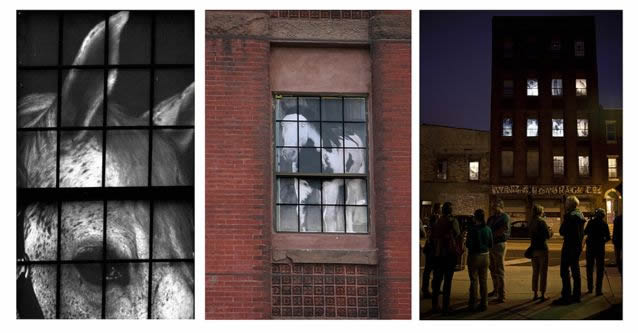Serendip is an independent site partnering with faculty at multiple colleges and universities around the world. Happy exploring!

Thursday's exercises
I thought the exercises that we did on Thursday were really interesting....but also completely terrifying. I was getting particularly frustrated with myself when we were completing the second exercises because I wrote a whole paragraph in my response explaining why I would not be an expert on this topic. Part of me really wanted to resist justifying my response with a flimsy background story but the other part of me had too much anxiety about putting my opinions out there. I got more and more comfortable as people started to read out their responses because it was clear that most people were just as concerned with sharing their opinions as I was. But what this exercise made me realize is that I, and maybe others in the class, didn't feel like they could share their opinions in any discussion format without receiving some kind of a judgment. It was helpful to hear Anne say that students don't have to have all of the answers, that's why we are students. Still, why does it often seem like we all have something to prove in a classroom?

Mid-semester course evaluation: what's working? what needs working on?
By 5 p.m. on Sunday, Oct. 20 (the day we return from fall break), please post AS A COMMENT HERE your mid-semester course evaluation of what's working and what needs working on in this class: what have you seen? what have you done? what's your interaction been (with texts, with your classmates and prof)? what are you (still) hoping for?...then we'll spend some classtime, in the week when we return, discussing needed adjustments.

Mid-semester course evaluation
By midnight Sunday, October 20th (the day we return from break): please post a 3-pp. mid-semester course evaluation here. Imagine that this course is a city in which you've been playing: what have you seen? what have you done? what's your interaction been (with the city, with texts, with your classmates and profs)? what are you hoping for? Think about form-and-content; how are you structuring this account? How can you organize your essay so that it illustrates what you want to say? What data have you to report, to illustrate your claims-and-ideas?

Wrongness at its Finest
There is something nice about being wrong. In the past, I have been ashamed of my “wrongness;” I have been embarrassed after I write a flawed essay or define a word incorrectly. However, throughout the past couple of years, I have felt more and more comfortable with “wrongness.” There are two ways I could look at it; I could worry that I am not as intelligent or as capable as everyone else or I could revel in the fact that I do not know much. The latter is not only kinder to my ego, it makes me more open to learning.
When I chose to take this class, I was completely wrong about what it was. I believed that it was a series of trips into the city paired with written reflections on the physical structure of the city. Although we have discussed this, I slowly realized that this course is not based off of topics, but lenses. I am not merely describing experiences, but using class discussions and papers as ways to interpret the city. This is not easy, but it helps me to play with ideas. Taking these influences into the city (Simmel’s, Flanagan’s, Zetkin’s etc.) and combining them with startling discoveries (for example, that there is a place that sells sparkly penis headbands) is the recipe for “wrongness.” My interpretations may be wrong and my further revelations may be wronger. But, this is where the fun is.





